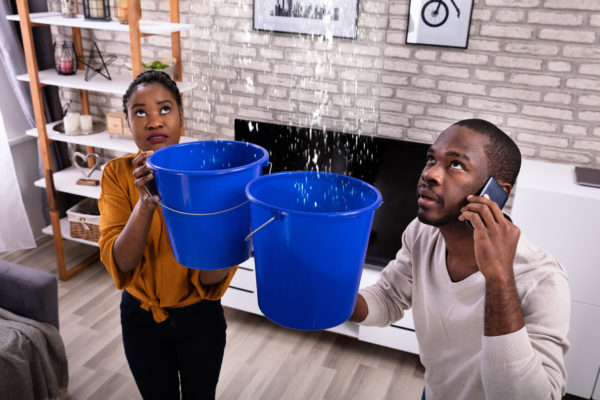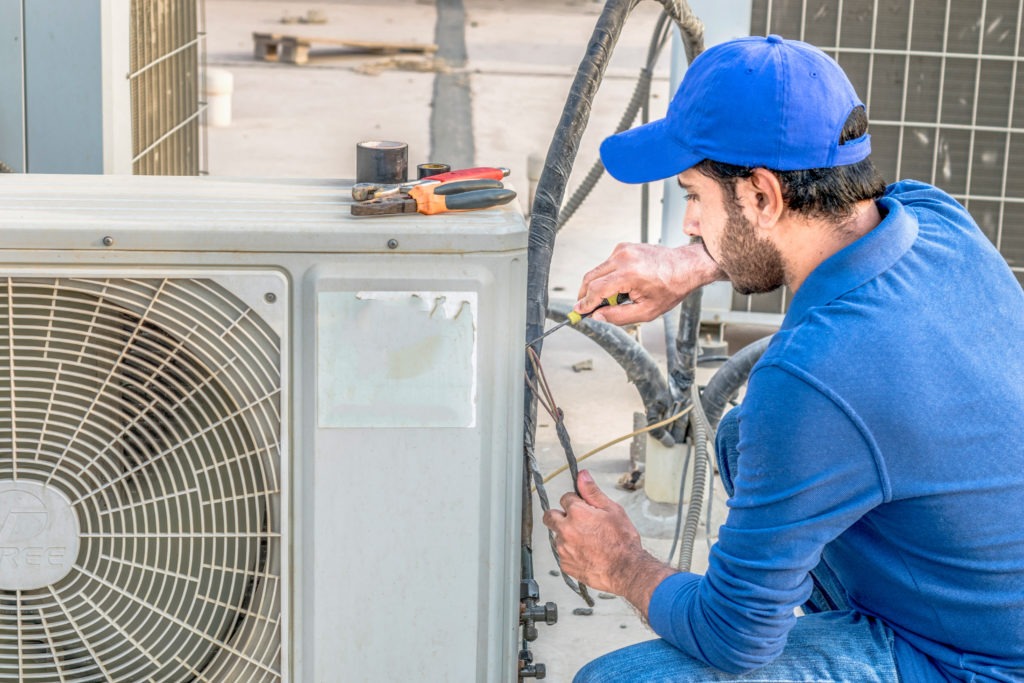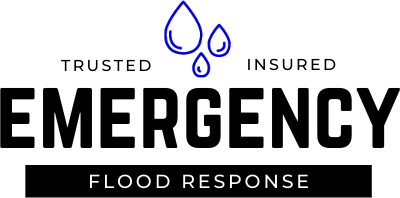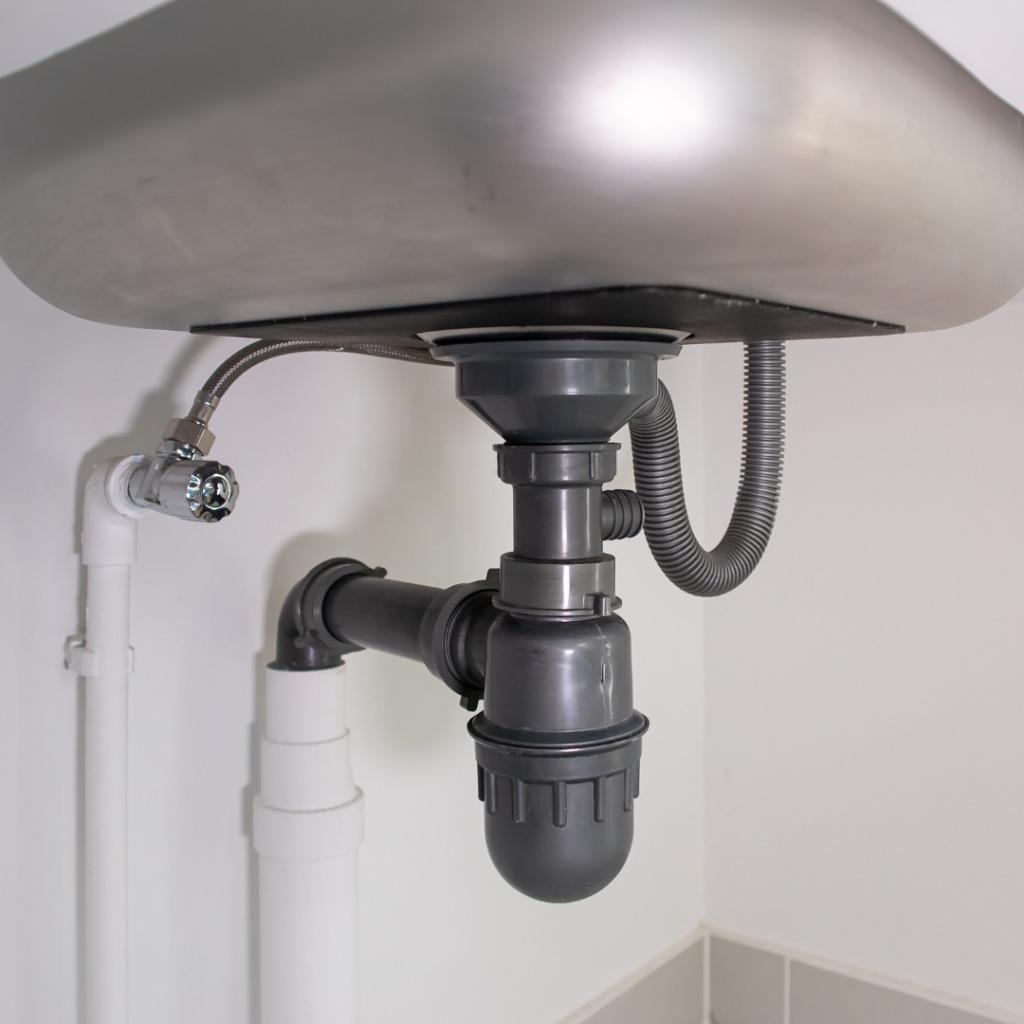Your Heating, Ventilation, and Air Conditioning (HVAC) system keeps your home comfortable, providing cold air and warmth exactly when you need them. However, the system can also cause extensive water damage if it’s not maintained correctly. How can you prevent HVAC water damage in your home?
What Are The Common Causes Of HVAC Water Damage?
 There are a few common culprits behind most instances of HVAC water damage: clogged drains, frozen evaporator coils, and pipes with old or poorly made connections. These problems often come about because the homeowner didn’t put enough time or care into HVAC maintenance. Issues can arise when the system is making up for clogs or inefficiencies, and when it works too hard, the evaporator coils can go through freezing and defrosting cycles that lead to water damage. All systems have air filters that remove dust, hair, and other forms of particulate matter from clogging up the components or recirculating through the home; when these get too full, the HVAC system has to work hard to force air through. Two other components to watch are the drain line and the drain pan. If ignored, the drain line gets clogged with dirt, mineral deposits, algae growth, and mould or mildew. It can cause water to overflow out of the drain pan and onto the floor of the home. The drain pan collects any water that overflows due to a clogged drain line, but it can degrade over time, resulting in further leaks and water damage.
There are a few common culprits behind most instances of HVAC water damage: clogged drains, frozen evaporator coils, and pipes with old or poorly made connections. These problems often come about because the homeowner didn’t put enough time or care into HVAC maintenance. Issues can arise when the system is making up for clogs or inefficiencies, and when it works too hard, the evaporator coils can go through freezing and defrosting cycles that lead to water damage. All systems have air filters that remove dust, hair, and other forms of particulate matter from clogging up the components or recirculating through the home; when these get too full, the HVAC system has to work hard to force air through. Two other components to watch are the drain line and the drain pan. If ignored, the drain line gets clogged with dirt, mineral deposits, algae growth, and mould or mildew. It can cause water to overflow out of the drain pan and onto the floor of the home. The drain pan collects any water that overflows due to a clogged drain line, but it can degrade over time, resulting in further leaks and water damage.
How Can You Prevent HVAC Water Damage?
 Every year, remove any dirt or debris accumulating on the outdoor unit called the condenser (the best time is spring before you need the air conditioning). Make sure that plant growth is cut back and kept away from the condenser, as they can interfere with proper airflow. Keep at least two feet between the outside unit and any bushes, shrubs, or weeds on your property. Homeowners can do many of the maintenance tasks themselves. If you have an average home running an average HVAC system (i.e. one that doesn’t need high-efficiency particulate air filters), change your filters twice a year. Regularly clean the drain pan, rinsing it with a mix of bleach and water to clear out any dirt or mould growth. There are several preventative measures you can also consider installing. An overflow shut-off device on the drain line to automatically turn off the A/C unit if the drain line backs up. A condensation pump can also help excess water flow into the proper disposal drain. A safety float switch can automatically shut down the power to the AC unit whenever condensation builds up, and there is a risk of water overflow.
Every year, remove any dirt or debris accumulating on the outdoor unit called the condenser (the best time is spring before you need the air conditioning). Make sure that plant growth is cut back and kept away from the condenser, as they can interfere with proper airflow. Keep at least two feet between the outside unit and any bushes, shrubs, or weeds on your property. Homeowners can do many of the maintenance tasks themselves. If you have an average home running an average HVAC system (i.e. one that doesn’t need high-efficiency particulate air filters), change your filters twice a year. Regularly clean the drain pan, rinsing it with a mix of bleach and water to clear out any dirt or mould growth. There are several preventative measures you can also consider installing. An overflow shut-off device on the drain line to automatically turn off the A/C unit if the drain line backs up. A condensation pump can also help excess water flow into the proper disposal drain. A safety float switch can automatically shut down the power to the AC unit whenever condensation builds up, and there is a risk of water overflow.
Hire Professionals For Check-Ups And Clean-Ups
Many of the bits of upkeep are easy to perform yourself. However, broader HVAC inspection can be difficult for homeowners. Hiring a professional is a good idea because, besides the tasks we’ve already mentioned, they can examine and fix problems related to all the intricate components of your HVAC system: ductwork, furnace flames, thermostats, registers, motors, A/C compressors, and more. If your home is suffering from water damage caused by your HVAC system, contact us today! Our professional cleaning services can restore your home and tackle serious problems related to mould growth, bacteria, and hazardous materials.

